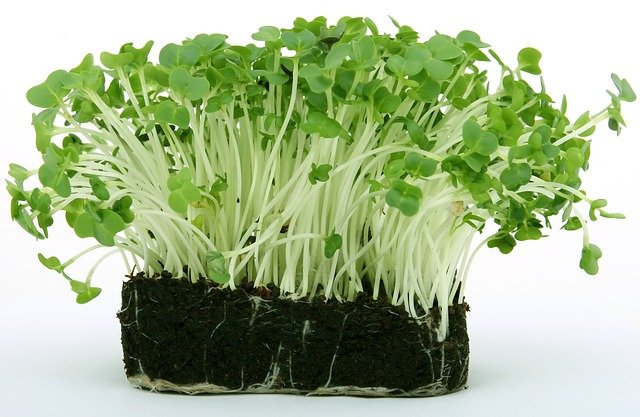
In a recent study, researchers have found how the vitamin content of some plants can be improved to make vegetarian and vegan diets more complete.
Vitamin B12 (known as cobalamin) is an essential dietary component.
Vegetarians are more prone to B12 deficiency as plants neither make nor require this nutrient.
Now a team at the University of Kent has shown that common garden cress can indeed take up cobalamin.
The amount of B12 absorbed by garden cress is dependent on the amount present in the growth medium.
The Kent team was able to confirm B12 uptake by showing that the nutrient ends up in the leaf.
In the study, they worked with biology teachers and year 11 and 12 pupils at Sir Roger Manwood’s School in Sandwich to investigate the detection and measurement of B12 in garden cress.
The pupils grew garden cress containing increasing concentrations of vitamin B12. After seven days growth, the leaves from the seedlings were removed, washed and analyzed.
The researchers found the seedlings could absorb cobalamin from the growth medium and to store it in their leaves.
To confirm this initial observation, the team then made a type of vitamin B12 that emits fluorescent light when activated by a laser.
This fluorescent B12 was fed to the plants and it was found to accumulate within a specialized part of the leaf cell called a vacuole.
The cell part provides definitive evidence that some plants can absorb and transport cobalamin.
Vitamin B12 is unique among the vitamins because it is made only by certain bacteria and therefore has to undergo a journey to make its way into more complex multi-cellular organisms.
The research described in the paper highlights how this journey can be followed using the fluorescent B12 molecules, which can also be used to help understand why some people are more prone to B12 deficiency.
The observation that certain plants are able to absorb B12 is important.
This is because nutrient-enriched plants could help overcome dietary limitations in countries such as India. These countries have a high proportion of vegetarians.
This finding may be significant as a way to address the global challenge of providing a nutrient-complete vegetarian diet, a valuable development as the world becomes increasingly meat-free due to population expansion.
The research is now published in the journal Cell Chemical Biology.
Copyright © 2018 Knowridge Science Report. All rights reserved.
Source: Cell Chemical Biology.



